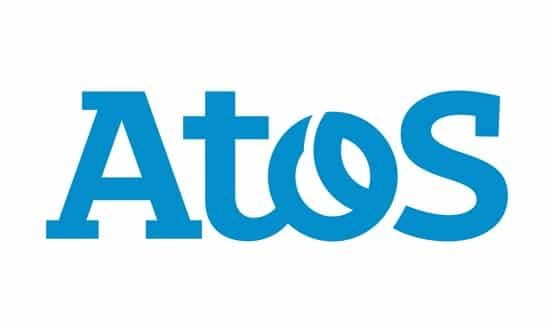Insider View: Jon Hoeksma
- 6 May 2010
 As Britain goes to the polls, it’s easy to identify the biggest NHS IT decision facing an incoming government. It’s what to do about the £3 billion local service provider deal with CSC for the North, Midlands and East of England.
As Britain goes to the polls, it’s easy to identify the biggest NHS IT decision facing an incoming government. It’s what to do about the £3 billion local service provider deal with CSC for the North, Midlands and East of England.
A new deal that was to cut more than 10% off the cost of the contract was left unsigned at the end of March, after CSC missed a key delivery deadline to get the latest version of iSoft’s Lorenzo software live at University Hospitals of Morecambe Bay NHS Trust.
With public services facing a massive spending squeeze, any new government is likely to require at least the £300m savings from the CSC contracts promised to the Treasury in the Pre-Budget Report – which wanted £600m from NPfIT overall. But it may insist that far deeper savings are achieved.
CSC LSP deals left up for grabs
The Conservatives have been clear that they would seek to re-negotiate the LSP deals. At the beginning of March, shadow health minister Stephen O’Brien urged the government not to “bind the hands” of a future government by resigning the deals with CSC and BT in London.
"Labour claims it is making efficiency savings, but cutting the deal with suppliers by as little as £600m does not reflect the scale by which they have failed to deliver,” O’Brien said then.
"The only viable route forward is to end the monopoly of the NHS IT suppliers and embrace the Conservatives’ plan to publish open standards and give local NHS trusts a choice of interoperable, proven IT systems."
Meanwhile, as reported by E-Health Insider last week, the negotiations up to the end of March focused on scaling back the functionality to be provided by Lorenzo, plus delivering the cut-down product to fewer hospitals.
NHS trusts in the North West of England are already being told they can get off the ‘Lorenzo bus’ without facing penalties – and trusts across the wider NME patch may be given the same option.
Any incoming government would therefore seem to have four choices. Sign the deal as it stood at the end of March; decide not to sign and revert to a materials contract; sign a far more limited deal that would provide for a radically different approach to hospital systems; or scrap the deal entirely.
Given the Conservatives’ stance, and that a new deal for London was signed with BT in March, option one looks possible but unlikely if there is a Tory administration. Option two would not only be more expensive but could be a recipe for failure, if CSC continued to struggle to deliver Lorenzo.
CSC may lose some exclusivity
CSC is unlikely to simply walk away. And for legal reasons, the nuclear option four looks unlikely. A new government is not likely to want to get into protracted litigation, particularly when the fall-out from Fujitsu’s exit from the South has still to be resolved.
Also, the DH should be careful not to throw the baby out with the bathwater. CSC has been pretty good at delivering systems in community, mental health and primary care and even at delivering proven hospital systems. It is just on Lorenzo Regional Care that it has continuously struggled.
EHI understands that as of late April, senior figures in the Department of Health favoured the third option. Under this scenario, CSC would lose exclusivity for the delivery of hospital systems in some or all of the clusters it holds contracts for and trusts would instead get some degree of choice.
Although NME tends to be lumped together, it consists of three separate contracts, dating back to when Accenture was the LSP for the Eastern and North-East clusters; before CSC took over the entire area when Accenture pulled out in September 2006.
EHI has been told that the two old-Accenture contracts provide for a choice of hospital systems; provisions that have long been moth-balled but are now being dusted off. One suggestion being discussed is that CSC would lose responsibility for delivering hospital systems in the East of England to begin with.
Within the NME, there is already a considerable degree of fragmentation. NHS Yorkshire and the Humber has been pursuing its own strategy, based on implementing TPP SystmOne as the strategic solution for shared care records. TPP announced in March that Mid-Yorkshire had become its first hospital customer.
NHS North West is also understood to have advanced plans for providing primary care trusts and an unspecified number of hospital trusts with TPP SystmOne instead of Lorenzo.
New deal still hinges on Morecambe Bay
Much still depends on CSC’s ability to successfully install Lorenzo at Morecambe Bay. The Department of Health can’t sign a new deal with CSC until this happens. A go-live within days of an administration taking power might strengthen the case for option one; or for a less radical scale back than might otherwise go ahead under option three.
In any event, given the scale of resources that have been committed to the project, a go-live looks certain sometime. On 31 March, NHS chief information officer Christine Connelly told EHI that she would “evaluate a recovery plan in days and weeks.”
EHI has since been told the trust itself was keen to go-live over the May Day bank holiday, but the DH vetoed the move as being too ‘political’ in an election period. The next likely date looks likely to be the second May bank holiday, now just two weeks away.
Just as one swallow does not make a summer, so one belaboured installation of Lorenzo in one hospital does not make a scalable solution ready for widespread NHS implementation.
NHS Bury, the first primary care trust to take Lorenzo Regional Care R1.9, has reported a number of issues with the system that are hampering the development plans of its provider arm. This may be instructive of the kind of problems that may yet lie ahead.
So the question is not just when will Morecambe Bay go live, but when will the fifth trust take Lorenzo? The tenth? The twentieth? The last?
Being able to give utterly convincing answers to these questions is likely to be the bare minimum a new government will demand from the DH, CSC and iSoft, plus the savings already promised. Anything less could see all bets being called off.




